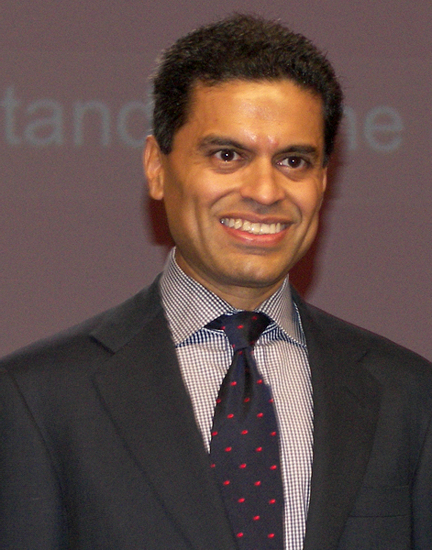Hier ein Auszug aus dem wichtigsten Buch des Jahres – Fareed Zakarias „The Post-American World“. Zakaria stellt den Westen in den Kontext der aufsteigenden (ehemals) Dritten Welt – „The Rise of the Rest“. Und er wägt Risiken und Chancen dieses enormen Wandels ab. Es ist extrem erfrischen, wie er Probleme relativiert, die uns die größten scheinen, wie etwa den islamistischen Terrorismus und das iranische Atomprogramm. Jawohl, ich meine das poltitiv: Zakaria relativiert, indem er diese Krisen in ein Verhältnis zu anderen historischen und aktuellen Problemen setzt. Das Buch erscheint demnächst auf Englisch, Anfang des kommenden Jahres auch auf Deutsch. Ich lese gerade die Fahnen und werde demnächst mehr berichten.
Zakaria ist der Chefredakteur der internationalen Ausgabe von Newsweek und einer der klügsten Kommentatoren der internationalen Politik. Hier ein Exzerpt aus der aktuellen Ausgabe von Newsweek (und hier ist einer erste Rezension in der New York Times):
„The threats we face are real. Islamic jihadists are a nasty bunch—they do want to attack civilians everywhere. But it is increasingly clear that militants and suicide bombers make up a tiny portion of the world’s 1.3 billion Muslims. They can do real damage, especially if they get their hands on nuclear weapons. But the combined efforts of the world’s governments have effectively put them on the run and continue to track them and their money. Jihad persists, but the jihadists have had to scatter, work in small local cells, and use simple and undetectable weapons. They have not been able to hit big, symbolic targets, especially ones involving Americans. So they blow up bombs in cafés, marketplaces, and subway stations. The problem is that in doing so, they kill locals and alienate ordinary Muslims. Look at the polls. Support for violence of any kind has dropped dramatically over the last five years in all Muslim countries.

Fareed Zakaria Foto: (CC) Larry D. Moore
Militant groups have reconstituted in certain areas where they exploit a particular local issue or have support from a local ethnic group or sect, most worryingly in Pakistan and Afghanistan where Islamic radicalism has become associated with Pashtun identity politics. But as a result, these groups are becoming more local and less global. Al Qaeda in Iraq, for example, has turned into a group that is more anti-Shiite than anti-American. The bottom line is this: since 9/11, Al Qaeda Central, the gang run by Osama bin Laden, has not been able to launch a single major terror attack in the West or any Arab country—its original targets. They used to do terrorism, now they make videotapes. Of course one day they will get lucky again, but that they have been stymied for almost seven years points out that in this battle between governments and terror groups, the former need not despair.
Some point to the dangers posed by countries like Iran. These rogue states present real problems, but look at them in context. The American economy is 68 times the size of Iran’s. Its military budget is 110 times that of the mullahs. Were Iran to attain a nuclear capacity, it would complicate the geopolitics of the Middle East. But none of the problems we face compare with the dangers posed by a rising Germany in the first half of the 20th century or an expansionist Soviet Union in the second half. Those were great global powers bent on world domination. If this is 1938, as some neoconservatives tell us, then Iran is Romania, not Germany.“
Mehr hier.